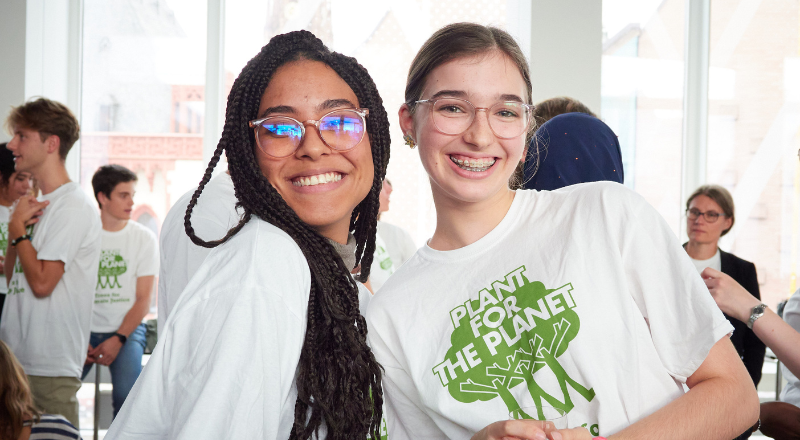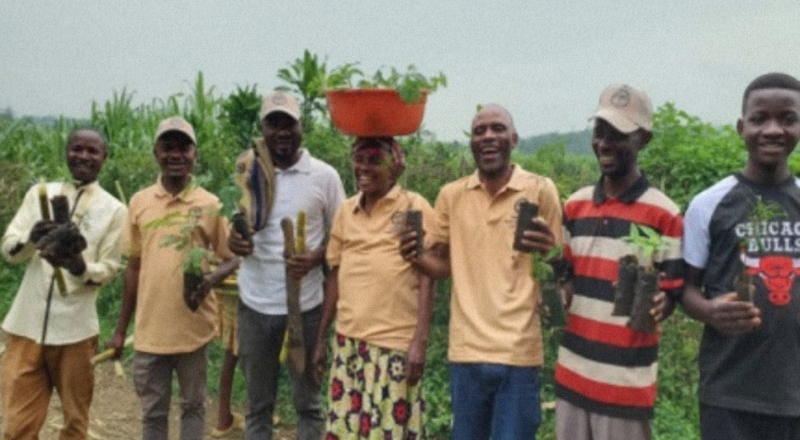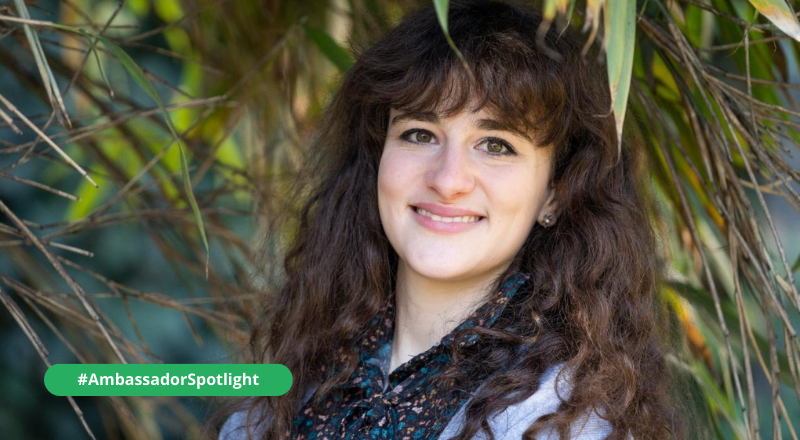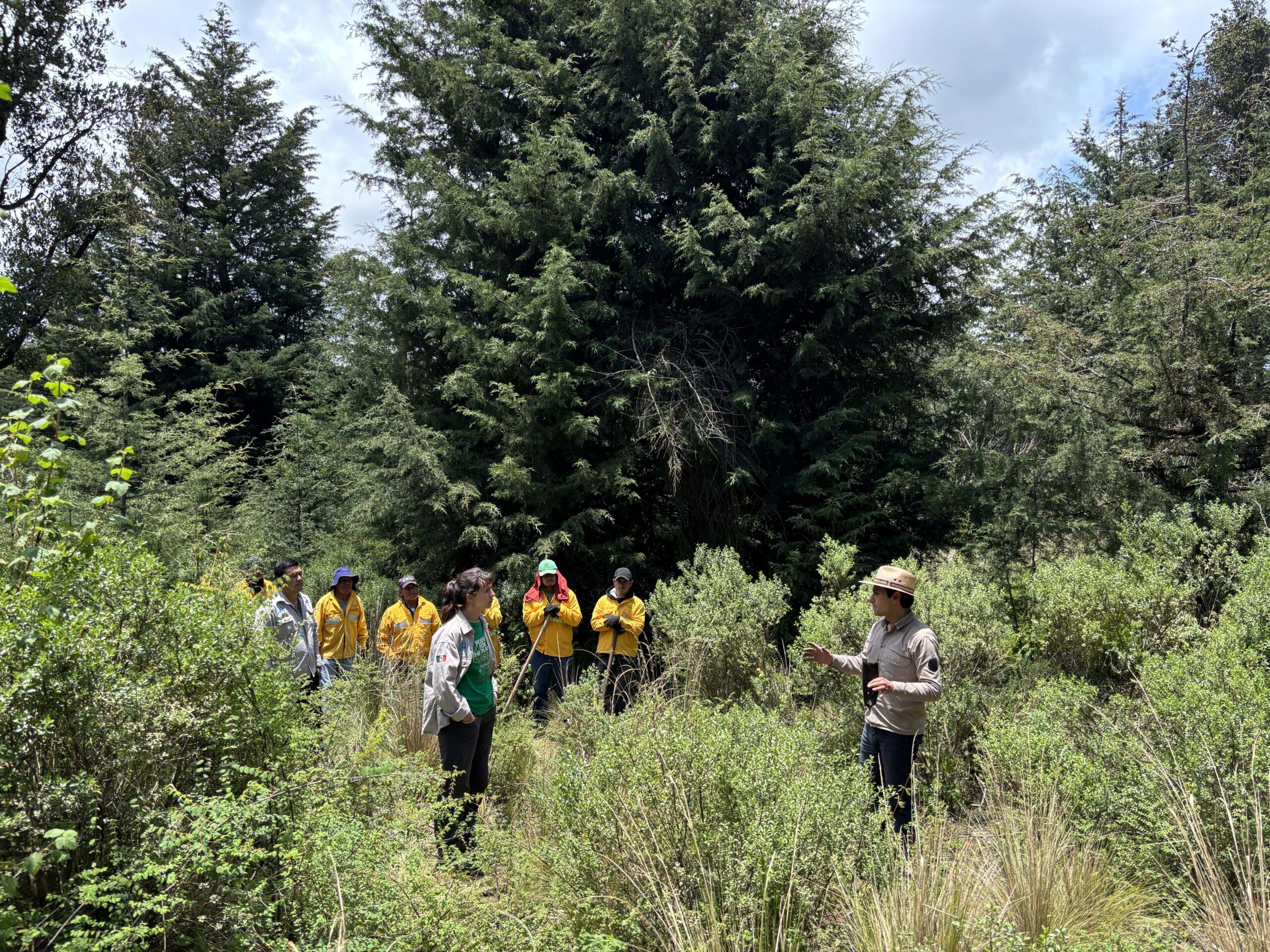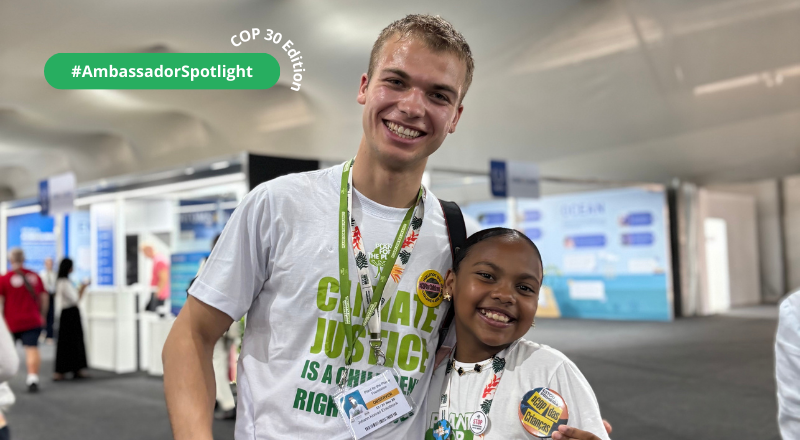
From the Series on Inspiring Climate Justice Ambassadors’ Stories Worldwide
When Johann Eickenbrock talks about his journey as a Climate Justice Ambassador, he doesn’t start with conferences or policy negotiations, that’s part of the reality today, but he starts with stones.
As a child, Johann spent hours outdoors searching for minerals, fossils, and anything that revealed the story of the natural world beneath his feet. He volunteered with NABU, helped install amphibian fences, and developed a deep sensitivity to the living systems around him. “I loved being outdoors and was fascinated by how intricate and alive everything felt,” he recalls.
But everything shifted in high school. In the school’s nature and climate working group, Johann learned that the same nature he admired was under threat, not by accident, but by decisions embedded in the systems humans built. The shock of that realisation pushed him toward action. Several students in the group were already Climate Justice Ambassadors with Plant-for-the-Planet, so the path felt close. In 2014, Johann joined an Academy with a friend, and at just 14 years old, stepped into a role that would shape the next decade of his life.
Growing With a Movement
Eleven years later, Johann looks back at Plant-for-the-Planet as a space that transformed fear into action. “It showed me that so many people, especially young people, are not just aware of the climate crisis, they’re already working on real solutions. Instead of being paralysed by the enormity of the problem, I understood that if we care about a liveable future, we have to get involved ourselves”, he points out.
If there was one spark that ignited his early passion, it came from the voice of Sir David Attenborough, whose documentaries revealed both the wonder of nature and the weight of its destruction. That quiet but powerful pairing stayed with Johann and eventually pushed him toward global advocacy.
Climate activism can be exhausting, but Johann’s hope stems from people, from the youth movements. And from the feeling of not being alone. He mentions: “When we come together, we can shift things that once seemed impossible.” Whenever the scale of the climate crisis feels overwhelming, he remembers the moments when collective action moved the needle, like the Paris Agreement, or countless local victories built by ordinary people standing up and organising. Therefore, his energy comes from the work itself: “Climate action isn’t a chore. It feels like a passion. The more I learn, the more I want to stay involved.”
From Youth Activist to Climate Finance Researcher
He now studies Climate Finance at Imperial College London, driven by one clear insight: we are not missing solutions, we are missing capital. Years of attending Climate Conferences showed him that implementation often stalls not because ideas are bad, but because money flows in the wrong direction.“Finance shapes what gets built, whose priorities count and how fast we can move. If finance is one of the pressure points, I want to be right there working on it”, he points out. This perspective grounds his activism in realism without losing ambition. Climate policy, he argues, must pass through the filter of financial feasibility. His academic focus is biodiversity and nature finance, a field he sees as critical for reversing ecosystem loss.
Strengthening the Global Ambassador Network
Johann’s commitment doesn’t end with his own activism. As a member, and former co-lead, of the Global Ambassadors Council (GAC), he has worked to strengthen and connect Plant-for-the-Planet’s 100,000+ Climate Justice Ambassadors worldwide. The GAC is the heartbeat of the youth movement within the organization. It keeps Ambassadors engaged, amplifies youth perspectives, and ensures their voices shape organisational decisions. Throughout the years, his roles ranged from treasurer to project leader, and one project in particular stands out: The Ambassador Awards.
The idea for the Ambassador Awards was simple but powerful: brilliant young Ambassadors were doing remarkable work, yet their impact often went unseen. Johann wanted to change that. “These young people pour so much energy and creativity into their projects. They deserved more recognition”, he said. By creating both regional and global awards, Johann ensured that Ambassadors everywhere, from Mumbai to Mexico City, could be celebrated, encouraged, and inspired to continue their work. The first Ambassador Awards successfully took place in 2024, and he hopes for the Awards to continue annually.
Representing the Ambassadors’ Network at a Global Stage
Johann has attended four major UN Climate Conferences: COP 26, COP 27, COP 28, and now COP 30. With every COP, the importance of youth voices becomes more apparent. “The decisions made at COP will shape the future, but they’re made mostly by people who won’t experience that future as intensely as we will”, he explains. Young people, Indigenous communities, people in the Global South, and other disproportionately affected groups carry most of the climate risk despite contributing the least to the crisis. Their voices, Johann insists, must be at the centre of negotiations, not added as an afterthought.
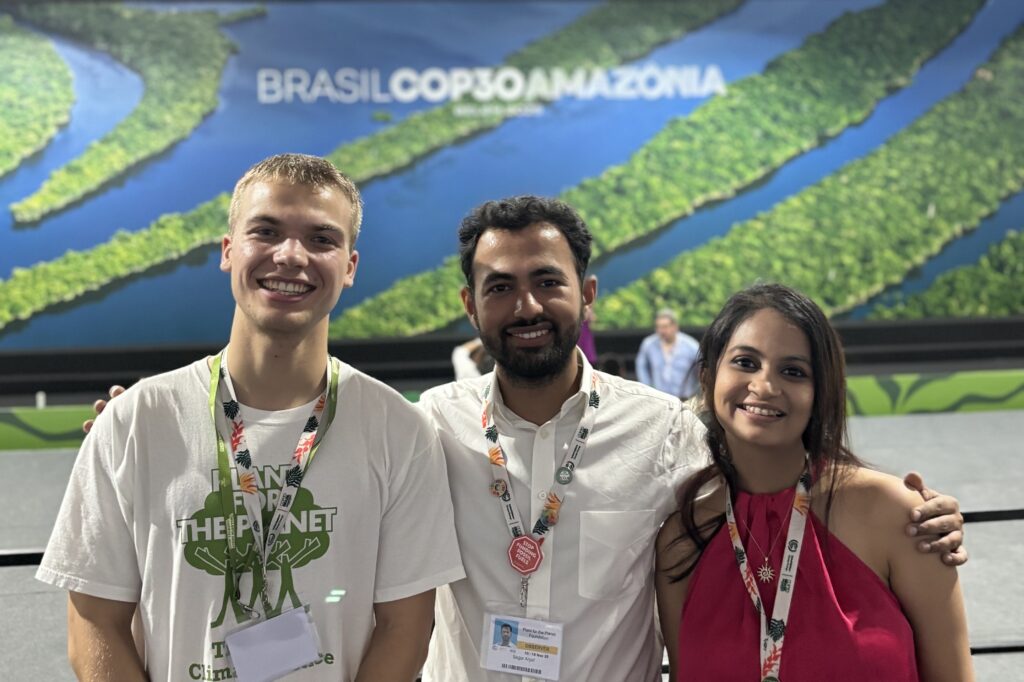
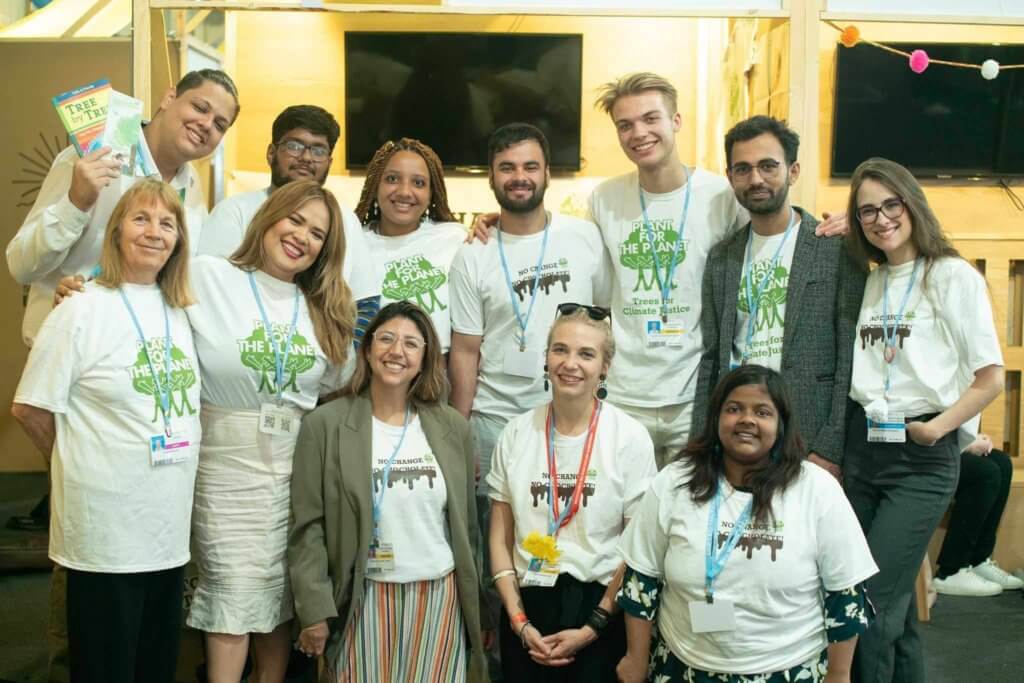
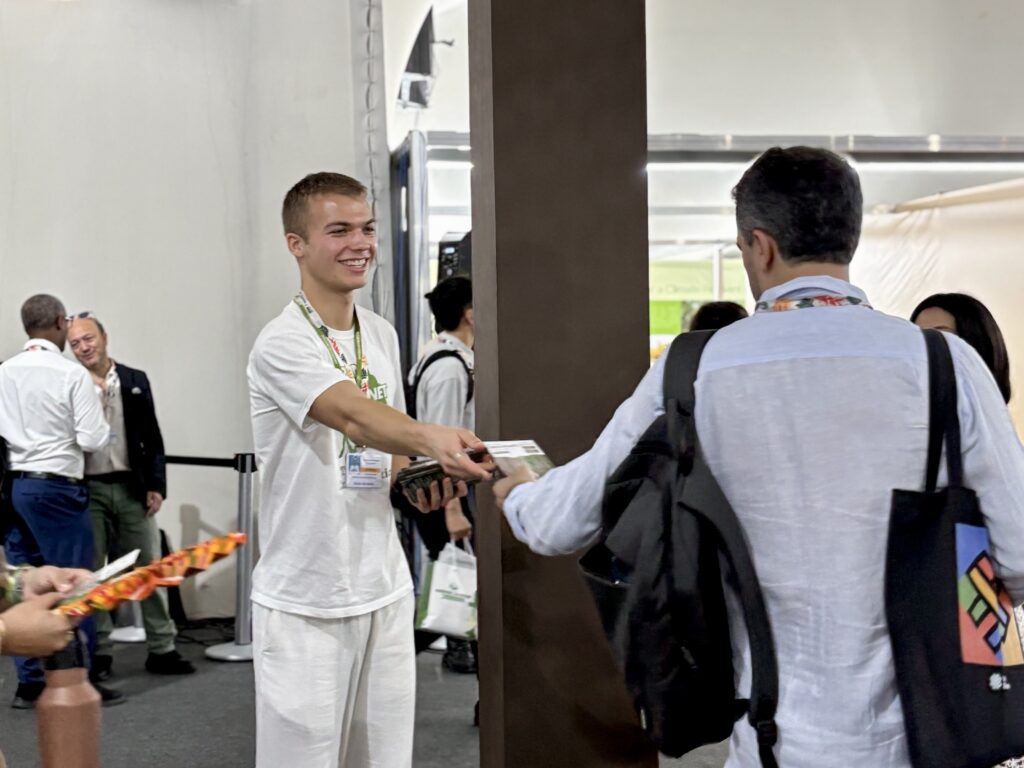
A Message to Young People: Be Bold
“Be bold, and talk about what you want to do”, he highlights. Ideas grow in conversation. And opportunities appear when you speak up. Impact rarely comes from silence.
His message for all Climate Justice Ambassadors:
“You’re not alone. You’re part of a global community of young people who care just as deeply as you do. Celebrate each other, share your ideas, and don’t be afraid to start something ambitious. Young people have already shifted global debates. Keep speaking up, keep organising, keep supporting each other. That’s how real change takes shape.”
Discover more about our Climate Justice Ambassadors’ network here.

